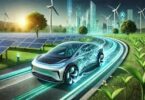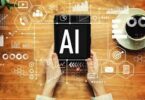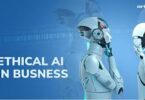The Future of AI: 10 Breakthroughs to Expect in 2025
Artificial intelligence (AI) is rapidly transforming industries and reshaping the way we live, work, and interact with technology. As we approach 2025, the pace of innovation in AI is accelerating, and several groundbreaking developments are poised to revolutionize multiple sectors. In this article, we’ll explore ten AI breakthroughs you can expect in 2025 and beyond, highlighting how these advancements will shape the future of business, healthcare, education, and beyond.
1. AI-Powered Drug Discovery and Personalized Medicine
The healthcare sector is poised to undergo a significant transformation thanks to AI’s ability to accelerate drug discovery and create personalized treatment plans. In 2025, AI is expected to play a critical role in identifying new drug candidates faster and more efficiently than traditional methods.
How It Works:
AI algorithms will analyze vast datasets of medical research, patient data, and molecular structures to identify potential drug compounds. By simulating how different drugs interact with the body, AI can predict the effectiveness of treatments and help design personalized medicine tailored to an individual’s genetic makeup.
Impact:
This will significantly reduce the time and cost of drug development, leading to faster treatments for various diseases, including cancer, rare genetic disorders, and chronic conditions. Personalized medicine will also ensure better outcomes, as treatments will be customized to each patient’s unique biology.
2. Autonomous Vehicles on the Road
By 2025, autonomous vehicles (AVs) are expected to be more widely adopted and safer than ever. AI-powered self-driving cars will not only transform transportation but also redefine urban mobility and logistics.
How It Works:
Autonomous vehicles use AI and machine learning to interpret data from sensors, cameras, and GPS to navigate safely on the road. They can analyze traffic patterns, detect pedestrians, and adapt to changing road conditions in real-time.
Impact:
As AVs become more reliable, they will reduce traffic accidents caused by human error, improve fuel efficiency, and decrease congestion. This will also impact industries such as ride-hailing, freight, and public transportation, creating more efficient systems for both individuals and businesses.
3. AI-Driven Climate Change Solutions
With growing concerns over climate change, AI will play an essential role in developing innovative solutions to mitigate environmental damage. In 2025, AI will be instrumental in optimizing energy usage, reducing waste, and enhancing climate research.
How It Works:
AI models will analyze vast amounts of environmental data, such as carbon emissions, weather patterns, and resource consumption, to predict climate trends and recommend strategies for carbon reduction. AI-driven systems will also improve energy efficiency in industries like manufacturing, transportation, and agriculture.
Impact:
AI can help track and reduce emissions, identify renewable energy solutions, and create smart cities that are more sustainable. These innovations will contribute to global efforts to combat climate change and move toward a more sustainable future.
4. Advanced Natural Language Processing (NLP)
By 2025, NLP will continue to advance, enabling more sophisticated and human-like interactions between AI and humans. This will have significant implications for customer service, content creation, and language translation.
How It Works:
AI systems will become increasingly proficient in understanding context, tone, and emotion in human language. With advances in deep learning and neural networks, NLP models will be able to generate human-like conversations, translate languages with greater accuracy, and even write creative content.
Impact:
This will enhance customer support through AI-powered chatbots, create more immersive virtual assistants, and make communication across languages and cultures easier. Moreover, industries such as media, entertainment, and e-commerce will benefit from AI’s ability to generate personalized content.
5. AI in Cybersecurity
As cyber threats become more sophisticated, AI will play a crucial role in defending against these attacks. By 2025, AI systems will be capable of predicting, detecting, and responding to cybersecurity threats in real-time.
How It Works:
AI-powered cybersecurity tools will continuously monitor networks, using machine learning to identify unusual patterns of activity that may indicate a security breach. AI can also autonomously respond to attacks, block malicious traffic, and neutralize threats before they can cause damage.
Impact:
This will improve data protection for businesses and individuals, reduce the risk of data breaches, and make it more difficult for cybercriminals to carry out attacks. As AI enhances threat detection, it will help create a safer digital environment for all.
6. AI-Powered Virtual Reality (VR) and Augmented Reality (AR)
The integration of AI with VR and AR will usher in a new era of immersive experiences. By 2025, AI will enhance the realism and interactivity of virtual environments, transforming sectors such as gaming, education, and training.
How It Works:
AI will personalize virtual environments based on user preferences, interactions, and learning styles. In gaming, AI will generate dynamic worlds that evolve in response to player actions, while in education, AI will create custom learning experiences that adapt to students’ needs.
Impact:
This will revolutionize entertainment, education, and professional training by offering highly engaging, interactive, and tailored experiences. Whether for gaming, virtual meetings, or skill development, AI-powered VR and AR will make these activities more realistic and enjoyable.
7. AI-Enhanced Robotics
Robotics powered by AI will continue to evolve, with more advanced robots taking on complex tasks in industries ranging from manufacturing to healthcare. By 2025, robots will be more autonomous, intelligent, and capable of interacting with humans in more natural ways.
How It Works:
AI-driven robots will use machine learning algorithms to improve their performance over time, enabling them to handle tasks such as precision surgery, autonomous warehouse operations, and even elderly care. These robots will be able to learn from their environment and adapt to new challenges.
Impact:
The adoption of AI-enhanced robots will increase efficiency in manufacturing, improve patient outcomes in healthcare, and assist with caregiving for an aging population. These advancements will also reduce the need for humans to perform dangerous or repetitive tasks, improving workplace safety.
8. AI-Optimized Supply Chains
Supply chain management will be revolutionized by AI in 2025, with algorithms designed to predict demand, optimize logistics, and improve inventory management. These advancements will make supply chains more agile, efficient, and responsive to global challenges.
How It Works:
AI systems will analyze historical data, market trends, and external factors to forecast demand and suggest the most efficient routes for shipping goods. They will also automate inventory management, ensuring that products are available when needed without overstocking.
Impact:
Businesses will be able to reduce costs, improve delivery times, and create more resilient supply chains. Consumers will benefit from faster and more reliable access to products, while businesses will be better equipped to navigate disruptions in global trade.
9. AI in Education
AI will continue to transform education in 2025, offering personalized learning experiences and making education more accessible. AI-powered tutoring systems will provide tailored instruction, while automated grading and administrative tasks will free up time for educators.
How It Works:
AI will analyze students’ learning patterns and preferences, adapting lessons to suit individual needs. AI-powered chatbots and virtual tutors will provide instant feedback and support, while data-driven insights will help teachers identify areas where students need improvement.
Impact:
This will create more equitable learning environments, where students of all abilities can benefit from personalized attention. Additionally, it will enable educators to focus on more creative and high-value tasks, while AI handles administrative and routine tasks.
10. Human-AI Collaboration
As AI continues to advance, humans and machines will collaborate in new and innovative ways. By 2025, AI will be an integral part of decision-making processes, augmenting human abilities and enhancing creativity.
How It Works:
AI systems will work alongside humans in various industries, from design and engineering to research and healthcare. By assisting with data analysis, automating routine tasks, and offering predictive insights, AI will empower humans to focus on more complex, creative, and strategic challenges.
Impact:
This partnership will lead to increased productivity, better decision-making, and more innovative solutions across a wide range of fields. AI will become a powerful tool that complements human skills, unlocking new levels of potential.
Conclusion: The Future is AI-Driven
As we look ahead to 2025, AI will continue to push the boundaries of what’s possible, transforming industries and enriching lives in countless ways. From healthcare breakthroughs to advancements in education, AI will create new opportunities and challenges, changing the way we live and work. By understanding the potential breakthroughs on the horizon, we can better prepare for a future where AI plays a central role in shaping our world.










Leave a Comment